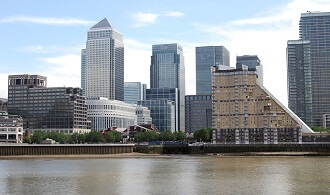Canary Wharf Group Takes EMA to Court Over Lease
Canary Wharf Group Takes EMA to Court Over Lease

The owners of Canary Wharf are set to take the European Medicines Agency (EMA) to the High Court in a dispute over whether the agency should have to uphold a 25-year office lease after Brexit. The agency is attempting to end the headquarters lease agreement with Canary Wharf Group which it signed in 2011, arguing that Brexit, as an unexpected event, essentially negates the terms of the contract.
Following the result of the EU referendum in 2016, the EMA announced plans to relocate its offices to Amsterdam. The agency, which governs EU regulations on medical products, is required to operate from within the European Union as an EU institution.
Its tenancy agreement for the Canary Wharf headquarters however, which came into effect in 2014 and is therefore set to last until 2039, does not contain a break right allowing for early termination.
The case is the first major property dispute to centre around the implications of Brexit, and as such could determine how numerous property disputes across the country are decided after Britain’s departure from the EU. In addition, it could also have implications for court disputes regarding the legal impact of Brexit on contracts in sectors including banking, finance and trade, as more companies seek to move their operations out of the UK following the withdrawal.
High Court to decide whether Brexit amounts to contract frustration
The Canary Wharf Group is bringing the case in a bid to confirm that the EMA has no legal basis for early termination of the lease.
From the EMA’s perspective, Brexit could be seen as an unforeseeable event which renders a previously agreed contract no longer possible to perform, which would amount to frustration of contract and allow the agency to walk away from its previous legal obligations.
The High Court will therefore decide whether Brexit qualifies as an unforeseeable event which could legally frustrate contractual obligations in the right circumstances. The Canary Wharf Group however are arguing that Brexit was a reasonably foreseeable event at the time the agreement was made. The developer will argue this on the basis that the EU treaty provides for the possibility of Member States wishing to withdraw, via the Article 50 clause.
In addition, the Conservative Party manifesto for the 2010 general election – published a year before the EMA and Canary Wharf Group entered an agreement – included a pledge to hold a referendum on whether Britain should remain in the EU.
The general consensus among many legal experts is that Canary Wharf Group are likely to win the case, given that frustration is usually only found in cases where an event is truly unforeseeable. Each party has been permitted to call on an expert in modern British history and political science to give evidence on whether Brexit should have been classified as a foreseeable or unforeseeable event in 2011.
Brexit likely to cause rise in property disputes
The verdict of the High Court in the case will likely have ramifications for contract disputes across various industries, where businesses may wish to argue that Brexit renders their agreement impossible to uphold.
The case for frustration can only be made where Brexit truly impacts the terms of an agreement, for example, where European markets are central to the purpose of the contract. This may be the case for financial institutions who are based in the UK but perform EU obligations, or more broadly still for exporters who deliver to EU markets.
Those seeking a ruling of frustration will also have to show that they could not have foreseen Brexit at the time of entering the agreement. Aside from the question of contract frustration, Britain’s withdrawal from the EU is likely to lead to a rise in a number of types of legal property disputes in the coming year.
For example, legal analysts are expecting to see more tenants seeking to exercise break options in their leases, more cases subsequently where landlords challenge the validity of this break, and more attempts in general to get out of contractual obligations which are rendered less profitable or attractive by Brexit.
Contact our experienced commercial property solicitors today
How to Choose the Right Commercial Property from IBB Solicitors
Whether you are acquiring, disposing of, developing, managing or funding commercial property, we can help. Call us now for expert, impartial and professional advice on 03456 381381, or email us at CRE@ibblaw.co.uk
